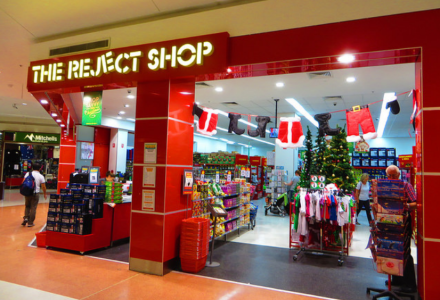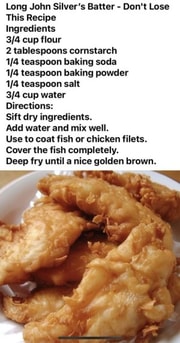Discount chain set to shake up shopping scene after major takeover
By
Gian T
- Replies 2
In a significant shift in the retail landscape, a well-known Australian discount chain prepares to challenge a major competitor.
This comes after a significant acquisition by an international player, sparking potential changes that could dramatically alter the market's dynamics.
The acquisition by Dollarama, which boasts a whopping 1,600 stores in Canada and a majority stake in Dollarcity, a growing discount retailer in Latin America, signals a bold new era for The Reject Shop.
The Canadian giant sees Australia as ripe for a retail revolution and plans to add up to 700 stores to its existing network.
But what does this mean for Australian consumers, who have long been enchanted by Kmart's budget-friendly offerings and the competitive prices of online giants like Shein and Temu?
Professor Nitika Garg, a consumer behaviour researcher at UNSW, believes this could be good news for shoppers.
As competition intensifies, Australians may find themselves with more options and potential savings, especially as many households currently feel the pinch of a cost-of-living crisis.
The Reject Shop's aggressive expansion strategy comes when consumers are increasingly looking for value in every purchase.
With the cost of essentials on the rise due to inflation, the discount retailer's commitment to offering the lowest everyday prices is more appealing than ever.
This is particularly relevant as supermarket giants Coles and Woolworths face scrutiny for their significant profits amidst rising prices.
Shoppers like Tayla Rose have already discovered the benefits of 'cross-shopping' at The Reject Shop, finding household staples at prices that undercut those of Woolworths.
From dishwashing tablets to snack packs, the savings are tangible and contribute to the growing popularity of the discount store.
The Reject Shop's spokesperson proudly states that the chain offers the lowest everyday prices in Australia for household cleaning products, health and well-being items, and snacks.
This claim resonates with budget-conscious consumers and positions The Reject Shop as a formidable competitor in the discount retail sector.
Dollarama's acquisition of The Reject Shop, at $6.68 per ordinary share in cash, reflects a significant valuation of $259 million for the Company, which was listed at just $2 per share when it debuted on the Australian Stock Exchange in 2004.
Billionaire businessman Raphael Geminder, the largest shareholder, will retain a 20 per cent stake in the business through his Kin Group.
Despite a full-year revenue of $852.7 million in sales for the 12 months leading up to June 30 last year, The Reject Shop's profit was a modest $4.7 million.
The challenge now is to maintain, or even improve, profitability with the planned expansion of over 300 new stores.
Dollarama's CEO Neil Rossy has expressed confidence in the strategic vision for the business and is committed to working with The Reject Shop's local management and its more than 5,000 employees across Australia.
By leveraging Dollarama's expertise in value retailing, merchandising, sourcing, and operations, the goal is to enhance the shopping experience for Australian consumers and offer unbeatable value.
As The Reject Shop embarks on this ambitious growth journey, it's clear that the Australian retail scene will get even more competitive.
With the promise of lower prices and an expanded range of products, consumers stand to benefit from this new chapter in discount shopping.
Credit: TikTok
 How do you think increased competition in the discount retail sector will impact your shopping habits in the future? What are your thoughts on The Reject Shop’s expansion and how it might affect other major retailers in Australia? Share your thoughts and opinions in the comments below.
How do you think increased competition in the discount retail sector will impact your shopping habits in the future? What are your thoughts on The Reject Shop’s expansion and how it might affect other major retailers in Australia? Share your thoughts and opinions in the comments below.
This comes after a significant acquisition by an international player, sparking potential changes that could dramatically alter the market's dynamics.
The acquisition by Dollarama, which boasts a whopping 1,600 stores in Canada and a majority stake in Dollarcity, a growing discount retailer in Latin America, signals a bold new era for The Reject Shop.
The Canadian giant sees Australia as ripe for a retail revolution and plans to add up to 700 stores to its existing network.
But what does this mean for Australian consumers, who have long been enchanted by Kmart's budget-friendly offerings and the competitive prices of online giants like Shein and Temu?
Professor Nitika Garg, a consumer behaviour researcher at UNSW, believes this could be good news for shoppers.
As competition intensifies, Australians may find themselves with more options and potential savings, especially as many households currently feel the pinch of a cost-of-living crisis.
The Reject Shop's aggressive expansion strategy comes when consumers are increasingly looking for value in every purchase.
With the cost of essentials on the rise due to inflation, the discount retailer's commitment to offering the lowest everyday prices is more appealing than ever.
This is particularly relevant as supermarket giants Coles and Woolworths face scrutiny for their significant profits amidst rising prices.
Shoppers like Tayla Rose have already discovered the benefits of 'cross-shopping' at The Reject Shop, finding household staples at prices that undercut those of Woolworths.
From dishwashing tablets to snack packs, the savings are tangible and contribute to the growing popularity of the discount store.
The Reject Shop's spokesperson proudly states that the chain offers the lowest everyday prices in Australia for household cleaning products, health and well-being items, and snacks.
This claim resonates with budget-conscious consumers and positions The Reject Shop as a formidable competitor in the discount retail sector.
Dollarama's acquisition of The Reject Shop, at $6.68 per ordinary share in cash, reflects a significant valuation of $259 million for the Company, which was listed at just $2 per share when it debuted on the Australian Stock Exchange in 2004.
Billionaire businessman Raphael Geminder, the largest shareholder, will retain a 20 per cent stake in the business through his Kin Group.
Despite a full-year revenue of $852.7 million in sales for the 12 months leading up to June 30 last year, The Reject Shop's profit was a modest $4.7 million.
The challenge now is to maintain, or even improve, profitability with the planned expansion of over 300 new stores.
Dollarama's CEO Neil Rossy has expressed confidence in the strategic vision for the business and is committed to working with The Reject Shop's local management and its more than 5,000 employees across Australia.
By leveraging Dollarama's expertise in value retailing, merchandising, sourcing, and operations, the goal is to enhance the shopping experience for Australian consumers and offer unbeatable value.
As The Reject Shop embarks on this ambitious growth journey, it's clear that the Australian retail scene will get even more competitive.
With the promise of lower prices and an expanded range of products, consumers stand to benefit from this new chapter in discount shopping.
Credit: TikTok
Key Takeaways
- The Reject Shop is set for significant expansion in Australia after being acquired by Canadian discount giant Dollarama for $259 million.
- Dollarama plans to nearly double The Reject Shop's store count in Australia, creating more competition for Kmart and other discount retailers.
- UNSW consumer behaviour researcher Professor Nitika Garg suggests that increased competition could lead to savings for Australians, especially during a cost-of-living crisis.
- Dollarama's acquisition of The Reject Shop at $6.68 per ordinary share reflects confidence in the discount retail sector in Australia despite current profit margins and the challenge of scaling up.








